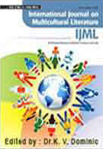GIEWEC’S BY-LAW
By-Law (Rules and Regulations)
(This Guild is registered under Societies Registration Act 1955)
I. Name of the Society: Guild of Indian English Writers, Editors and Critics (GIEWEC)
II. Office of the Society: Kannappilly House, Thodupuzha East P.O., Kerala, India, Pin: 685585
III. Address: Guild of Indian English Writers, Editors and Critics (GIEWEC), Kannappilly House, Thodupuzha East P.O., Kerala, India, Pin: 685585
IV. Area of Operation: All over India.
V. Objectives of the Society
This Guild will be a non-profit-making institution aimed at promoting Indian English literature through the members’ creative and critical writings and by editing and publishing books and journals. The Guild is open to all irrespective of Religion, Caste or Sex.
-
Promote Indian English Literature in general
-
Publish a refereed biannual journal entitled Writers Editors Critics for the contributions of the members
-
Inspire and enlighten the members in creative and critical writing
-
Assist Ph.D. scholars in thesis writing
-
Make the members aware of research methodology and the latest documentation style
-
Conduct annual conferences at various States
-
Award the best poet, the best novelist, the best short story writer, the best critic, and the best editor every year from among the members
-
Assist the members in getting their articles published in other journals
-
Help the members in getting their books published by established publishers
-
Convince the Minister, HRD, GOI and all the States, Commissioners/Secretaries, HRD, curriculum/syllabus committees of universities and schools to include creative writings of 21st century Indian English writers also in the syllabi
VI. Membership
The membership of the Guild is restricted to Indian English writers, editors, critics, publishers, college/university/High School/Higher Secondary School teachers, and Ph. D. Research scholars researching on Indian Languages, dialects and English literature. There are two types of memberships—Life and annual.
Patron membership of the Guild – Rs. 6000 (including subscription of the journal for a period of eight years)
Annual Membership of the Guild – Rs. 1200 (including subscription of the journal)
The membership of the Guild is subject to the following conditions:
1) He/She should be a citizen of India. Foreign nationals can subscribe to the guilds journal, Writers Editors Critics.
2) The member should be minimum a graduate
3) The member should pay the prescribed membership fee
4) He/She should abide by the rules and regulations of the Guild and should not indulge in actions which are against the goodwill and reputation of the Guild. He/She should abstain himself/herself from baseless accusation and defamation of the office and the office bearers. He/She should not be engaged in any activity detrimental to the objectives of the Guild. If a member is thus found guilty, the President has the power to take disciplinary action against him/her and even cancel his/her membership
5) Total number of members of the Guild shall not be less than twenty. A member will lose his membership if he/she disqualifies himself/herself on any of the above grounds.
6) One can also resign from the Guild by giving notice and the Guild may accept such request provided he/she has no dues to the Guild and he/she is not in custody of any property or valuables o the Guild.
7) Every person who desires to become a member of the Guild shall send a request to the Secretary, and the Secretary will request him/her to remit the membership fee into the account of the Guild either online or through DD drawn in favour of the Guild.
VII. Funds of the Guild
The funds of the Guild shall be raised by way of:
-
Membership fee
-
Annual subscription of the Journal
-
Donations from members and non-members
The funds of the guild will be invested strictly in accordance with the provisions of section 11(5) rws. 13(1) GIEWEC is an association which is irrevocable.
VIII. General Body
The Guild shall convene General Body meeting of all the members every year. As it is a pan Indian Guild, the general body will be held every year rotationally in different States. The quorum for the general body meeting shall be 1/3 of the eligible members in the membership roll of the guild or fifteen numbers whichever is less. The executive committee on its own initiative or on written request from 1/3 of the eligible members shall convene a special body meeting to transact special or urgent business.
IX. Powers and Duties of the General Body
-
The ultimate authority of the society vests in the general body. General body will decide by simple majority on all matters not specifically delegated to the Executive Committee under the rules
-
The tenure of the present executive committee is one year. There will be only nine members in the executive committee. The general body shall elect from themselves the new President of the Guild every year. He/she in turn will immediately thereafter conduct the election of eight members of the executive committee. The tenure of the second and succeeding committees will be one year. However the executive committee can propose to the general body to remove any member from the executive committee for dereliction of duty or misconduct and the general body has the power to remove him/her from the committee at any time.
-
Since GIEWEC is a pan Indian association an executive committee member shall be in touch with the Office at Thodupuzha either through phone calls or email or print letters and shall respond to all the letters sent to him/her from the office by email. Dereliction of this duty will lead him/her to lose his executive committee membership.
-
The annual report and the annual accounts of the Guild duly approved by the executive committee and audited by the auditor appointed by the executive committee in the case of first year accounts and subsequent years by the auditor appointed by the annual general body shall be presented to the general body for consideration and approval.
-
The general body shall have the power to approve the budget presented by the executive committee with or without modification.
-
It shall also lay down policy guidelines, future activities of the Guild and suggestions for improving the internal management including the disciplinary matters.
-
The general body of the society may authorize or delegate the powers in these respects including the preparation of necessary bye-laws, rules and regulations for the proper management of its affairs wherever required to the President/Executive Committee.
-
The General Body shall appoint an Auditor for the Society and the period of appointment shall be for one year except in the case of first year.
X. Management
The management of the Guild shall vest in the Executive Committee consisting of the President and a maximum of fourteen members elected by the General Body from among the members. The headquarters of the Guild will be the residence of Dr. K. V. Dominic (Kannappilly House) at Thodupuzha East, Kerala, India.
The Executive Committee shall prepare a list of members and keep it open at the office of the Guild during the office hours. It shall keep a copy of Societies Registration Act and Rules, Memorandum of Association and Rules and Regulations, bye-laws for the inspection of the same by the members. The executive committee shall conduct the affairs of the society in accordance with the objectives and policies defined and the rules and regulations as amended from time to time. The quorum of the Executive Committee shall be including the President/Vice Presidents. The committee shall meet as often as required.
Each member of the executive committee shall have one vote and in case of quality of votes, the president shall a casting vote.
An executive committee member may resign at any time, but such resignation shall take effect only on the date on which it is accepted by the committee.
XI. Powers and Duties of the Executive Committee
The property of the Guild shall be managed by the President and he/she shall take care of the properties and use funds of the society for carrying out the objects of the society in accordance with the decision of the executive committee. The Executive Committee may delegate any of its powers to the President or to the Secretary as may be required for the day to day functioning of the society.
The Committee shall:
1. Be responsible to file with the Registrar all statements, returns, and lists of the members of the society and the governing body and such other information as may be required under the act and rules.
2. Shall arrange general body meeting at least once in a year.
3. Elect office bearers at annual conferences
4. Present to the general body the annual report and also the annual accounts duly audited for the consideration and approval of the general body.
5. Have the powers to admit members as per the rules
6. Scrutinize the annual budget of the Guild and recommend the same for general body for its approval
7. Sanction the expenditure for the management of the Guild within the approved budget.
8. Make bye-laws/sub rules for the day to day operation for the Guild and act according to such rules. The executive committee may, however, get the sub rules/bye-laws approved/ratified by the general body.
9. Prepare/cause to prepare, annually, in such forms as may be specified by the Registrar (a) a statement showing the receipts and disbursements for the year (b) income and expenditure statement (c) a balance sheet (d) such other statements as may be required.
10. The executive committee may while ensuring the operations of the Guild in accordance with the objectives, shall generate adequate funds from the internal source.
11. Since the Guild is pan Indian, the executive committee shall authorize the President, Secretary and Treasurer to open and operate a Joint Bank Account with any Nationalized Bank, preferably the State Bank of India in the area on behalf of the society. Funds not required for immediate disbursement shall be deposited in the bank.
12. Since GIEWEC is a pan Indian association an executive committee member shall be in touch with the Office at Thodupuzha either through phone calls or email or print letters and shall respond to all the letters sent to him/her from the office by email. Dereliction of this duty will lead him/her to lose his executive committee membership. The power to remove such an executive committee member lies on the Executive Committee itself.
XII. Powers of the President
The President shall:
-
Preside over all meetings of the general body and executive committee of the Guild. In the case of equal division of votes, he shall exercise a casting vote.
-
Have the power to sanction contingency expenditure subject to provisions in the approved budget. All expenditure made in this manner shall be placed before the next executive committee for ratification.
-
Be responsible for the management and overall supervision of the activities of the Guild.
-
Have the power to take disciplinary action against the commission agents of the Guild.
-
Have necessary authority to correspond with public, Government Department, other Institutions, on behalf of the society.
-
If a member acts against the goodwill, reputation and normal function of the Guild or defames the office and office bearers with baseless accusations, the President has the power to take disciplinary action against him/her and even cancel his/her membership.
XIII. Powers and Duties of the Vice-Presidents
The Vice Presidents have all the powers and duties of the President in the absence of the latter.
XIV. Powers and Duties of the Secretary
The secretary shall keep documents and accounts of the Guild and present it before the committee and General Body as and when required.
The secretary may be asked to execute any of the powers of the executive committee or President for the day to day functioning of the Guild.
Since GIEWEC account is a joint account comprising the President, Secretary and the Treasurer, the Secretary can keep an amount of the Guild up to Rs. 25,000 for the day to day smooth function of the office
XV. Duties of the Treasurer
The Treasurer, along with the President and the Secretary shall open an account on behalf of the Guild in any Nationalized Bank in the area and accept membership fees and deposit them in the account. When the Secretary demands money for the day to day activities, the Treasurer shall send him the amount. The treasurer shall keep all records of all the financial operation.
XVI. Audit
Once in every year the accounts of the society shall be audited by a Charted Accountant and placed at the annual general meeting of the Guild. The auditors or the Guild shall be appointed every year at the annual general meeting of the Guild.
XVII. Amendments
The Memorandum of the Association of the Guild and Rules and Regulations here after made by the Guild may from time to time be varied, added or revoked by majority of not less than three fifth of the members of the society present at the General Body. Such amendments can be carried out only with the prior approval of the Commissioner of Income Tax.
XVIII. Budget and Banking
The entire resource and assets of the Guild from any source however derived shall be applied to the society towards the attainment of the objectives of the society. The funds of the Guild shall be deposited in the name of the society in any nationalized bank or co-operative bank and it shall be operated by the Secretary.
IX. Records
The Guild shall maintain membership book, accounts book, minutes’ book, receipts and vouchers with the records.
XX. Profit and Income
The profits of the Guild of Indian English Writers, Editor and Critics (GIEWEC) shall be utilized only for charitable purpose and shall not be disbursed among the members.
XXI. Dissolution
The Guild of Indian English Writers, Editor and Critics (GIEWEC) can be dissolved if two third of the members constituting the general body pass a vote to that effect. In that event its assets shall be first used to pay off all liabilities and the remaining assets if any, shall be given to an organization of similar objective, if not, to Sate Government.
If any of the clause mentioned above are found to be ultra vires to the provisions the Travancore Cochin Literary-Scientific and Charitable Societies Registration of 1955 (Act XII of 1955) or any other Act or rule prevailing in the locality such clause, shall be considered void-ab-Tuito even if the Society get Registration under this Societies Act.





